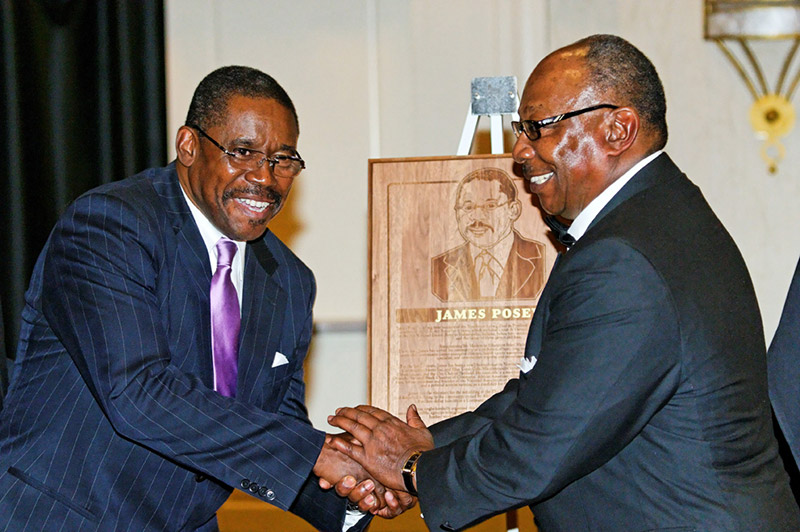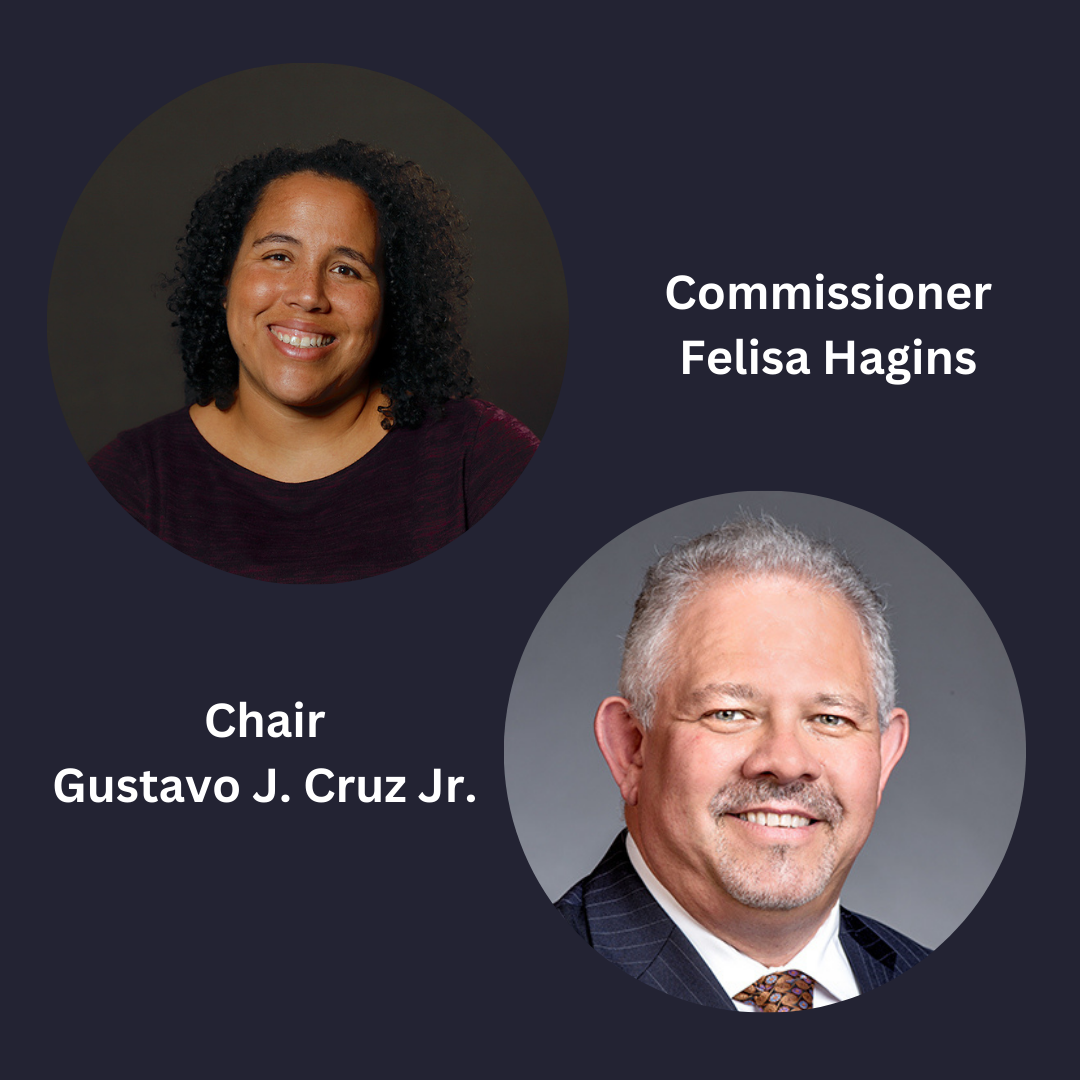Photo: James L. Posey at his induction into the NAMCO Hall of Fame
As a longtime Portland resident and co-founder of National Association of Minority Contractors of Oregon (NAMCO), former mayoral candidate and retail business owner James L. Posey has created a legacy of advocacy with lasting impact for minority contractors in Oregon. For more than 20 years, Posey used his experience in the trucking and asphalt paving business to voice strong support for fair practices for minority businesses within the construction industry.
After his U.S. Air Force service in Vietnam, Posey migrated to the Pacific Northwest and worked for the U.S Forestry Service in Washington State. After retiring in 1990, James looked back at his experience working with his grandfather, John Quincy Posey for the elder Posey’s garbage collection company, and started his own trucking company with a focus on the construction industry. That marked the beginning of his advocacy career in the Portland area.
The Legacy Emanuel Hospital Atrium was James’ first job, and he quickly learned that systemic racist practices put up a major barrier for independent minority truckers. Any violation could block truckers from getting the appropriate license to work independently and forced them to work with a surrogate. He conducted a study which found that while black truckers comprised less than one percent of Oregon’s truckers, they received 10 percent of the violations. The only and oldest African American trucking firm, Rock and Road (Alvin Hall) Construction, served as the surrogate for other African American truckers. Ultimately, lack of construction-related work led James to turn to the asphalt paving business.
As one of the co-founders of NAMCO, James’ advocacy expanded beyond his individual experience to other people of color. He realized that working collectively brings more power. Starting in 1996 NAMCO placed constant pressure on TriMet, joining a lawsuit to provide access to public construction projects. One of his proudest moments came when TriMet, now one of the leading supporters of minority contractors, awarded a large and substantive construction contract to an African American trucking consortium.
James considers himself more a survivor than an activist. His perseverance has earned respect and admiration from the next generation of his peers in the construction trade. Still, he says, much work remains to be done. He urges Prosper Portland to continue to build on its mission of equitable outcomes and establish consequences that change behavior. He advises his peers to look beyond their own growth and seek opportunity to introduce the construction trades to younger people of color.




